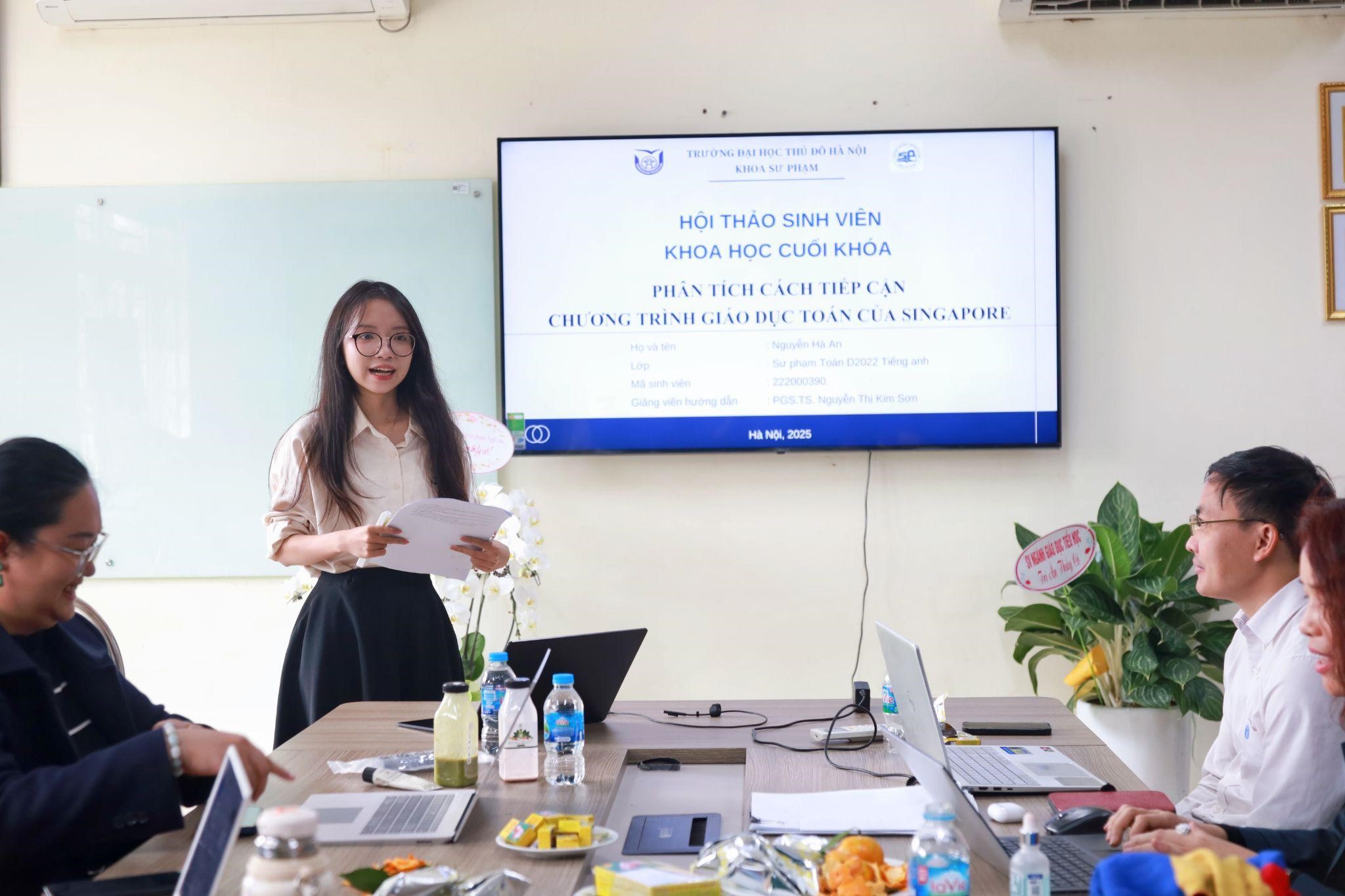Introduction to the Special Education Major
1. Introduction to the Special Education Major
The Special Education major belongs to the Faculty of Social Sciences and Humanities at Hanoi Metropolitan University. This is a prestigious educational institution in Vietnam specializing in the training and professional development of high-quality bachelor-level Special Education teachers, making a significant contribution to the development of the Special Education field in both Hanoi and Vietnam as a whole.
Graduates with a Bachelor of Science in Special Education possess the capacity to organize care and educational activities for children with developmental disorders; provide counseling for parents and teachers from preschool to lower secondary levels; engage in self-study and participate in scientific research in special education at research institutions; and demonstrate the ability to work independently, creatively, and problem-solve to develop themselves and meet professional demands. This aligns with the applied professional orientation of Hanoi Metropolitan University in the context of general education reform and international integration.

2. Training Program
The Bachelor of Science program in Special Education at the undergraduate level aims to equip students with comprehensive professional knowledge and essential practical skills for organizing, caring for, intervening in, educating, and providing vocational orientation for children with developmental disorders. The curriculum consists of a total of 130 credits, including general education and professional knowledge modules. Each knowledge block includes both compulsory and elective courses to ensure flexibility and broaden learning opportunities for students.
The program is designed in a modern direction, incorporating updated training models from developed countries and drawing on the experiences of reputable domestic universities in special education training. In addition to the experienced in-house teaching staff, the university plans to invite renowned professors and associate professors from leading institutions in Vietnam to participate in teaching.
The Special Education undergraduate program is delivered through diverse teaching and learning methods, with a focus on developing students’ self-learning abilities and practical, real-world experience. The program’s academic load complies with the framework set by the Ministry of Education and Training for a 4-year bachelor's degree. It also reflects reforms in teaching and learning approaches in higher education. The duration of the Special Education program at Hanoi Metropolitan University is 4 years, taught in the credit-based system. Upon graduation, students will receive a Bachelor's degree in Special Education, opening up a wide range of job and academic opportunities.
Faculty: The teaching staff are highly qualified, possess strong ethics, professional pedagogical skills, and rich practical experience. 100% of lecturers hold a master’s degree or higher.
Facilities: Classrooms are fully equipped with modern lighting, water systems, and teaching aids. There is also a system of practice and internship facilities both on-campus and in partnership with external organizations, meeting the requirements of applied-oriented education.
3. Career Opportunities for New Graduates
With increasing international integration, the education sector must innovate to keep pace with global trends. As a result, the field of Special Education is gaining more attention and creating attractive career opportunities for new graduates:
Students may pursue a second major concurrently in fields such as Primary Education, Early Childhood Education, Secondary Education, or English Language.
Work as Special Education specialists at educational management agencies under the Ministry of Education and Training, Departments and District Offices of Education and Training.
Serve as researchers at institutes and centers specializing in Special Education under universities, research institutions, and colleges.
Work as lecturers teaching Special Education at institutions offering this major.
Work as intervention teachers at hospitals and specialized centers for children with developmental disorders.
Become inclusive education teachers at kindergartens and secondary schools.
Pursue postgraduate education (Master’s, Ph.D.) in Special Education or related fields.
Based on the knowledge, skills, and foreign language competencies gained during training, graduates will be capable of conducting independent research and accessing domestic and international knowledge sources to update and enhance their professional expertise and research capacity.
Do you find this major both fascinating and full of career opportunities after graduation? If you're truly interested and passionate about Special Education, don’t hesitate—register during the upcoming admissions period!
---------
Contact Information:
Hanoi Metropolitan University Fanpage: https://www.facebook.com/hnmu.edu.vn/
Admissions Consulting Fanpage: https://www.facebook.com/hnmutuyensinh/
Facebook Group: https://www.facebook.com/groups/hnmu.edu.vn
Zalo Official Account (OA): 0986735072









